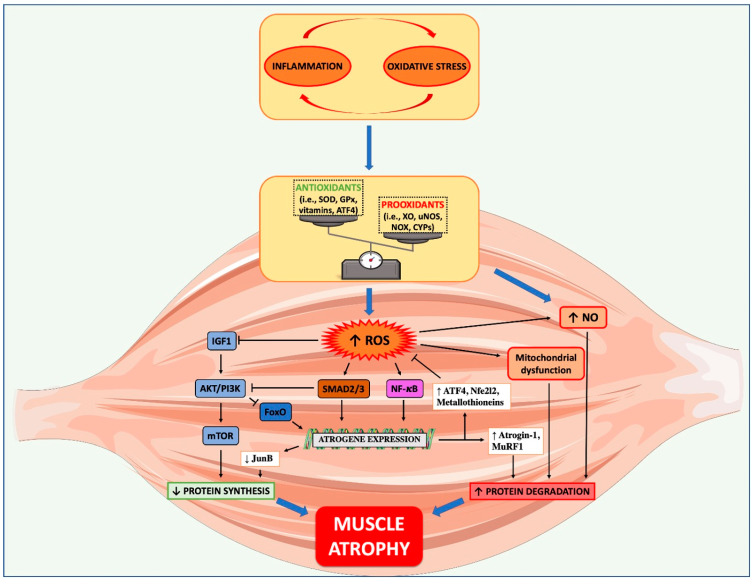Figure 1.
Role of oxidative stress in muscle wasting during cancer cachexia. The crosstalk between increased inflammation and oxidative stress, occurring during cancer cachexia (CC), can drive in muscles an imbalance between antioxidant and pro-oxidant systems, favoring the generation of different sources of reactive oxygen species (ROS). During CC, ROS can reduce protein synthesis, by inhibiting IGF1/PI3K/mTOR pathway, and increase protein degradation, by stimulating pro-atrophic pathways such as FoxO3, SMAD2/3, and NF-κB. The latter promotes the ubiquitin proteasome system activation (atrogin-1 and MuRF1) that, along with ROS-mediated nitric oxide (NO) accumulation and mitochondrial dysfunction, facilitates the hypercatabolism typical of CC. Despite the concomitant activation of detoxifying systems (ATF4, Nfe2l2, metallothioneins), OS seems not to be resolved in muscles during CC.

